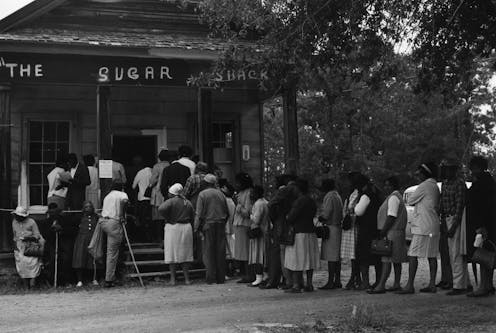Civil rights legislation sparked powerful backlash that's still shaping American politics
- Written by Julian Maxwell Hayter, Associate Professor of Leadership Studies, University of Richmond
 A group of voters lining up outside the polling station, a small Sugar Shack store, on May 3, 1966, in Peachtree, Ala., after the Voting Rights Act was passed the previous year. MPI/Getty Images
A group of voters lining up outside the polling station, a small Sugar Shack store, on May 3, 1966, in Peachtree, Ala., after the Voting Rights Act was passed the previous year. MPI/Getty ImagesFor nearly 60 years, conservatives have been trying to gut the Voting Rights Act of 1965, the crowning achievement of the civil rights movement. As a...
Read more: Civil rights legislation sparked powerful backlash that's still shaping American politics

